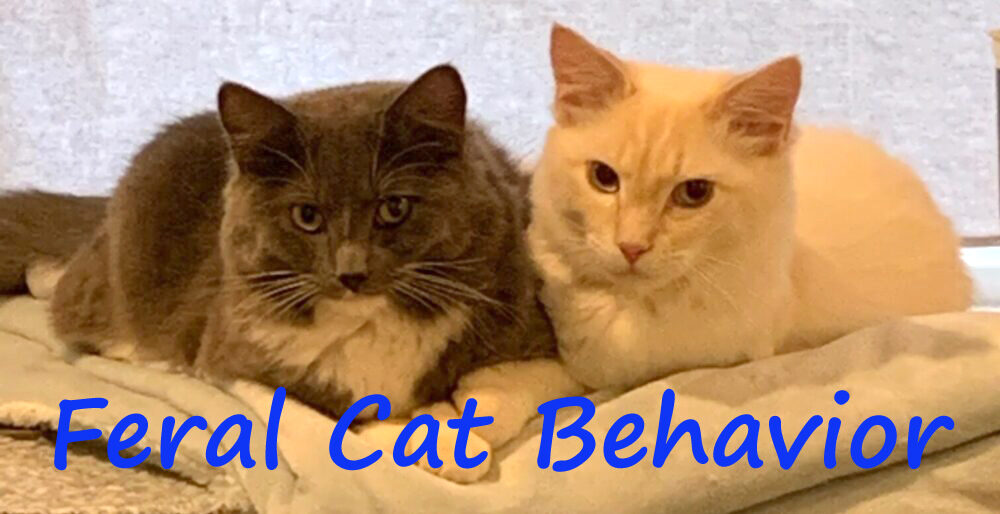This just came to my attention:
Cat Lady Goes To Tax Court
A caretaker of feral cats (over 80 in her colony) is also a family lawyer. In 2004 she filed with the IRS and claimed $12,068 as a charitable deduction to her income. All monies related to cat care according to the recent case. These were unreimbursed volunteer expenses and therefore, deductible.
“It’s a huge win for all the rescue people out there,” says the cat
lady, Jan Van Dusen. “The judge was really nice. He understands
what we do. We all go broke doing this.”
The Internal Revenue Service had denied Van Dusen’s entire
deduction, stating that her expenses were personal and not rendered
on behalf of a qualifying charity. The Tax Court, however, found
that she worked for 501(c)(3) charities, primarily Fix Our Ferals,
but also Island Cat Resources and Adoption, Berkeley East Bay
Humane Society, East Bay Society for The Prevention of Cruelty to
Animals, and Second Chance Cat Rescue. To read the Tax Court
opinion,
click here.
She trapped feral cats, socialized them, tried to find them homes or would finally return them outside and care for them there. She did what all of us rescuers do in a day, laundered cat bedding, sanitized her home, scooped litter pans, cleaned cages and carriers and fed all the cats. She provided vet care for each cat, bought cleaning supplies and pet supplies and kept most of the receipts. She also kept track of the mileage to and from the vet and deducted the mileage she spent carting them back and forth to the vet.
The Court concluded that 90 percent of the veterinary and pet
supply expenses and that 50 percent of the cleaning supply and
utility expenses were attributable to Van Dusen’s care for foster
cats and not personal (she had 7 resident cats) and therefore
potentially deductible.
Then the Court considered the substantiation requirements for
claiming a charitable deduction. The Court divided her expenses
into two pots: expenses of less than $250 and expenses of $250 or
more. For the first category, you generally need a canceled check
or other “reliable written record” as proof for a charitable
deduction. In this case the Court accepted carbon copies from Van
Dusen’s check book, credit card statements, an account history from
a pet hospital, and utility invoices.
Van Dusen had charges to a hardware store and Lowe’s where she said
she bought bags of wood stove pellets to use as cat litter, and
although Van Dusen no longer had the itemized receipts, the Court
allowed bank statements that showed the total purchase price if the
total was an exact multiple of the price of one bag of pellets.
(Ideally, you want a receipt that lists the items you purchased.)
Just as a side note, using this type of litter in confined spaces can cause asthma in some cats because of the pellet dust once the pellets get peed on.
For the expenses of $250 or more, the Court denied the deductions
because Van Dusen did not have a contemporaneous letter from a
charity acknowledging that she expended the funds on its behalf.
These big-ticket expenses, mostly bills to the Thornhill Pet
Hospital and the St. Louis Vet Clinic, totaled just over $5,000.
Van Dusen said she didn’t know about the extra requirements for the
expenses of $250 or more until she was audited. You need to have a
substantiation letter from the charity on or before the earlier of
the date you file your return or the due date (including
extensions) for filing the return.
“Had Ms. VanDusen kept better records, almost all of her
unreimbursed volunteer expenses would have been deductible,” says
William Markley, a tax lawyer in Walnut Creek, Calif. who is
helping Van Dusen in negotiations with the IRS over unpaid taxes
for several years. She is addressing the issue of foster cat care
expenses in other tax years, and this decision may be helpful in
that regard, Markley says.
The Tax Court did nix some of Van Dusen’s expenses as
“categorically not related to taking care of foster cats and
therefore not deductible”: $85 for cremating a pet cat, $170 for
bar association dues, and $146 for Department of Motor Vehicle
fees. And the Court found other expenses were not deductible as
they were not “solely attributable” to foster cat care: a wet/dry
vacuum and membership in Costco.
Van Dusen, 59, says she has volunteered as a feral cat rescuer
since 1995, but 2004 was the first year she claimed a deduction for
her cat care expenses. She bought her house in 2002. “It’s me and
the cats,” she says. Last year, she adopted out 23 cats, and placed
8 others in a home for special needs cats. She says she now has
“about 60 cats” and is considering starting her own 501(c)(3)
charity to help feral cats.

Interesting! We suspect trying to deduct cat care expenses will be a “come audit me” flag for a while, at least, but if you keep good enough records it might be worth a shot.
PS: FWIW, We can’t get the link at ‘click here’ to work.
Wow that is interesting. I am not surprised that some of the items were denied but I am glad that some were allowed – hopefully she has good records for any other years that have been a problem. And it is good to know what needs to be kept just in case.